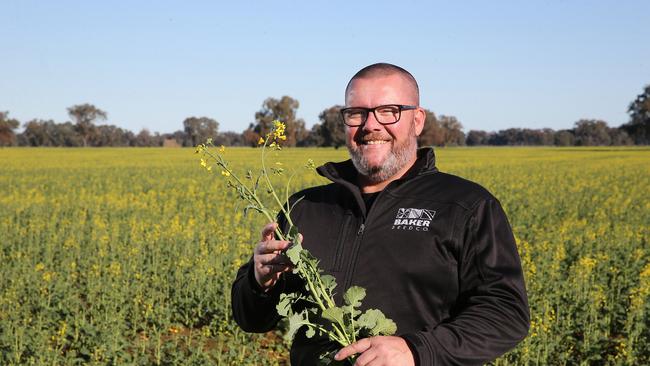Farmers nervy that IR laws shaking-up owner-driver rules will make it harder to do business.
Farmers fear proposed workplace laws intending to correct unfair contract terms for truck drivers will increase the cost of doing business.
Farmers are nervous that proposed federal government workplace laws intending to correct unfair contract terms for truck drivers could “leave a gaping hole” in agricultural supply chains and drive up checkout prices.
The changes, recently tabled as part of an omnibus bill by Workplace Relations Minister Tony Burke, will create an expert advisory group within the Fair Work Commission empowered to set enforceable minimum road transport industry rates and conditions.
National Farmers’ Federation chief executive Tony Mahar fears the legislation could threaten the solvency of small transport operations and was “dredging up” a system akin to the ill-fated Road Safety Remuneration Tribunal.

The RSRT was established by Labor in 2012 but abolished by the Coalition in 2016 after owner-drivers showed minimum rates were undercutting their viability.
Mr Mahar also said the reforms could make “it harder and more expensive” to get produce from paddock to plate and have “dire financial consequences” for farmers who supplemented farm income as owner-drivers.
Farmer concerns revolve around increased red tape and costs increasing pressure on producers and family transport companies already operating on tight margins.
However, Mr Burke, who is currently on leave, previously said the “important” Closing Loopholes Bill reforms were written following consultation with industry and unions.
“We need minimum standards in this sector to protect lives and ensure a sustainable and viable trucking industry,” he said.
Under the proposed changes, the minister can introduce new regulations if they promote a “safe, sustainable and viable” industry. There is also a “failsafe” to suspend orders for a “full merits review”.

Australian Trucking Association chair David Smith said the organisation had met with Mr Burke and was happy he had “moved on some of our concerns”.
However, he said while the current legislation contained safeguards against RSRT issues that “literally destroyed owner-drivers”, “we don’t have the legislation in yet and the potential impacts are diabolic”.
“I am nervous and we are watching this pretty closely,” he said.
Rutherglen grains farmer Ashley Fraser said successful broadacre operations now depended as much on logistics as farming and was also concerned about unintended consequences.
“Corporates charge more than family businesses and, as farming is fluid, they also provide the service we need when we need it,” he said.
Crop farmer Ryan Milgate said most farmers that store grains and own trucks are “by default” running small transport businesses.

He said a “big” transport company recently quoted $800 to shift a pallet from Melbourne to the Wimmera, but he went with a local company that quoted six times less.
The bill must still pass through a Senate inquiry.
Meanwhile, farmers are increasing on-farm storage and stockpiling more and more fuel, fertiliser and spare parts to avoid future supply chain issues and market fluctuations.
Jason Mellings said any loss of small transport operators would heavily impact the many farmers increasing on-farm grain storage. “If we take smaller operators out of the system we’ve got to start relying on bigger companies, but there’s not enough that can do it and they charge a fortune,” he said.




